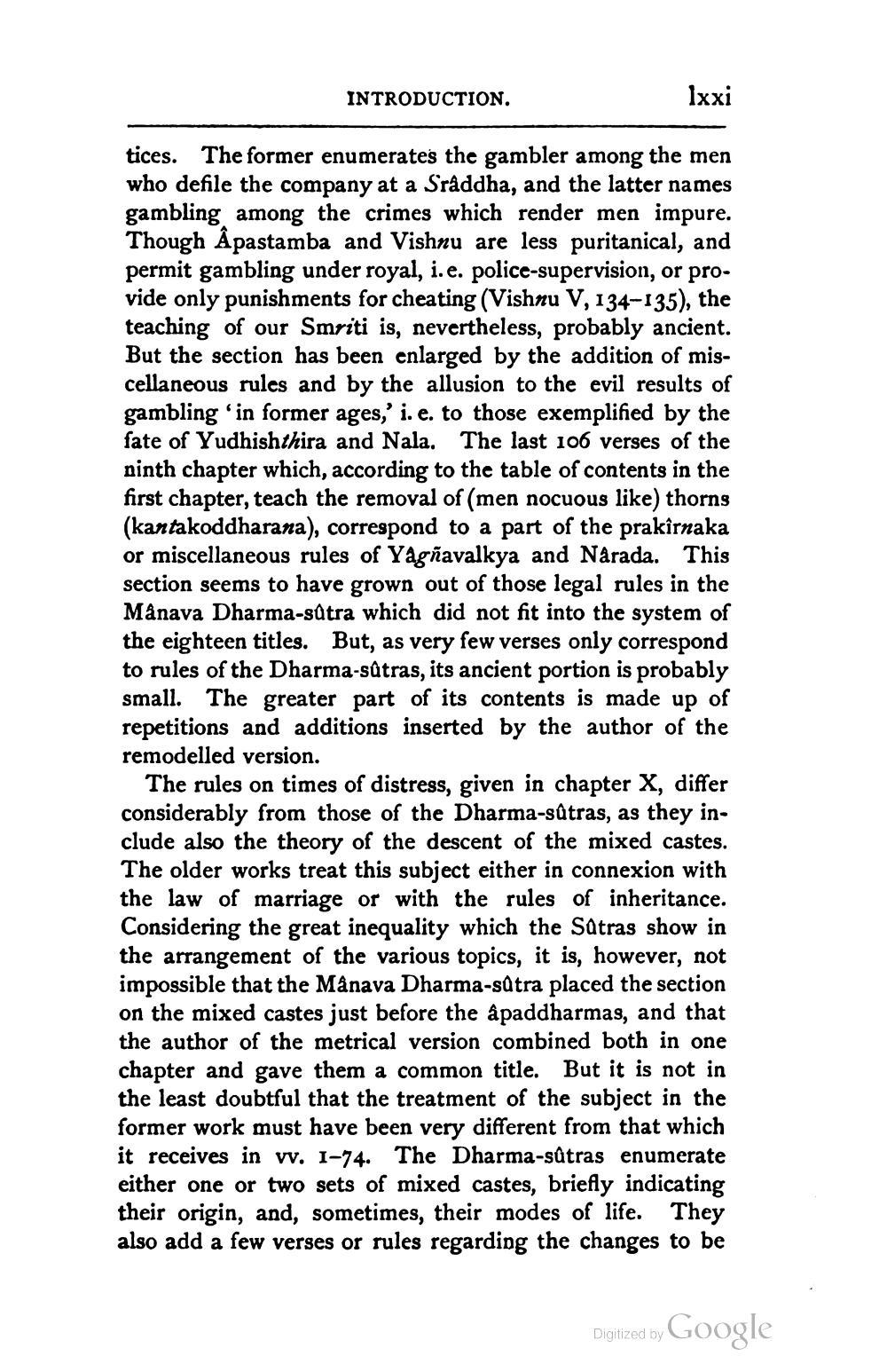________________
INTRODUCTION.
Ixxi
tices. The former enumerates the gambler among the men who defile the company at a Sraddha, and the latter names gambling among the crimes which render men impure. Though Âpastamba and Vishnu are less puritanical, and permit gambling under royal, i.e. police-supervision, or provide only punishments for cheating (Vishnu V, 134-135), the teaching of our Smriti is, nevertheless, probably ancient. But the section has been enlarged by the addition of miscellaneous rules and by the allusion to the evil results of gambling 'in former ages,' i.e. to those exemplified by the fate of Yudhishthira and Nala. The last 106 verses of the ninth chapter which, according to the table of contents in the first chapter, teach the removal of (men nocuous like) thorns (kantakoddharana), correspond to a part of the prakirnaka or miscellaneous rules of Yagñavalkya and Narada. This section seems to have grown out of those legal rules in the Månava Dharma-sútra which did not fit into the system of the eighteen titles. But, as very few verses only correspond to rules of the Dharma-sútras, its ancient portion is probably small. The greater part of its contents is made up of repetitions and additions inserted by the author of the remodelled version.
The rules on times of distress, given in chapter X, differ considerably from those of the Dharma-sûtras, as they include also the theory of the descent of the mixed castes. The older works treat this subject either in connexion with the law of marriage or with the rules of inheritance. Considering the great inequality which the Satras show in the arrangement of the various topics, it is, however, not impossible that the Månava Dharma-sätra placed the section on the mixed castes just before the âpaddharmas, and that the author of the metrical version combined both in one chapter and gave them a common title. But it is not in the least doubtful that the treatment of the subject in the former work must have been very different from that which it receives in w. 1-74. The Dharma-sútras enumerate either one or two sets of mixed castes, briefly indicating their origin, and, sometimes, their modes of life. They also add a few verses or rules regarding the changes to be
Digitized by Google




